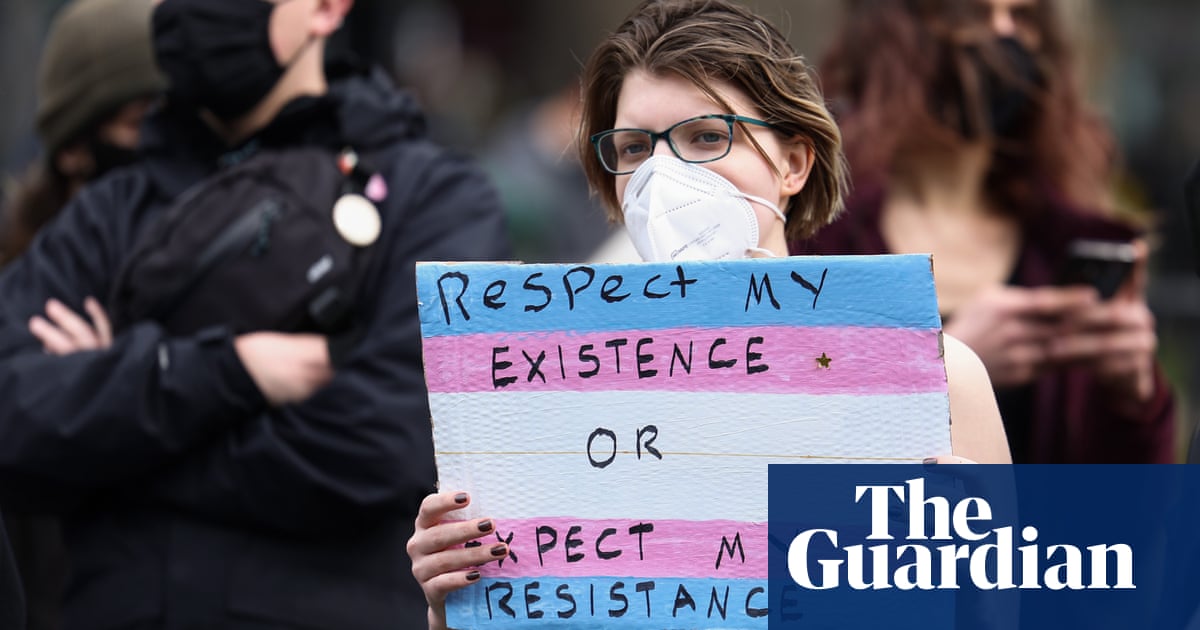
Scotland’s only clinic to offer treatment to gender-questioning young people has paused prescribing puberty blockers and cross-sex hormones in light of last week’s Cass review.
The Sandyford clinic, based in Glasgow, which offers a range of services including emergency contraception, abortion and support for sexual assault victims as well as transgender healthcare, posted a service update online on Thursday morning.
It stated: “Referrals from the Sandyford sexual health services to paediatric endocrinology for the prescription of puberty suppressing hormones have been paused for any new patients assessed by our young person’s gender service.
“Patients aged 16 to 17 years old who have not been treated by paediatric endocrinology, but who are still seeking treatment for their gender incongruence, will no longer be prescribed gender-affirming hormone treatment until they are 18 years old.”
Last week, a landmark review by the paediatrician Dr Hilary Cass that was commissioned by NHS England found “weak evidence” for the use of puberty blockers and cross-sex hormones to treat young people experiencing gender incongruence and said that this vulnerable cohort had been “let down” by the “toxicity” of the debate surrounding their care.
The move follows weeks of attacks on the clinic for not immediately following the effective ban on puberty blockers imposed by NHS England in March.
But on Thursday NHS Greater Glasgow and Clyde revealed it had already paused starting new patients on the treatments since mid-March, in response to the NHS England decision and while awaiting publication of the Cass review.
Earlier this week, the first minister, Humza Yousaf, said Scottish heath boards would give the “utmost consideration” to Cass’s 388-page report. He added: “When it comes to the prescribing of medicine, clinicians are best placed – not politicians, government ministers or myself as first minister.”
While critics have described the clinic as “the tartan Tavistock”, the Guardian understands that the Sandyford does not follow a strictly affirmative model of care for young people, an approach that Cass called into question.
According to FoI data, between 2016 and 2023, 71 under-18s received prescriptions for puberty blockers after referrals from the clinic.
The Sandyford emphasised that existing patients who were already receiving hormone suppressants or gender-affirming hormones were not affected by this pause.
The clinic said: “We are committed to providing the best possible clinical care for young people accessing and understand the distress that gender incongruence can cause. While this pause is in place, we will continue to give anyone who is referred into the young people gender service the psychological support that they require while we review the pathways in line with the findings.”
Dr Emilia Crighton, the NHSGGC director of public health, said: “The next step from here is to work with the Scottish government and academic partners to generate evidence that enables us to deliver safe care for our patients.”
“We echo the views of Dr Hilary Cass that toxicity around public debate is impacting the lives of young people seeking the care of our service and does not serve the teams working hard to care and support them.”
Vic Valentine, the manager of Scottish Trans, said they were “saddened” that the decision would result in “some young people being unable to access the care they need at all, or having to wait even longer for it”.
A statement added: “This decision has been taken within the context where the reality of trans people’s experiences and lives is questioned almost daily in some of the media and some political circles. This makes us worry that the decision has been influenced by that context rather than solely through consideration of the best interests of trans children and young people.”